Why India matters
It is time to dust off those preconceived notions about India as dirty and poverty stricken. Investing in India makes a sound Asia-strategic sense when coupled with China.
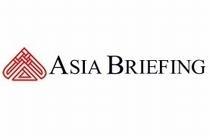 Courtesy: Asia Briefing
Courtesy: Asia Briefing
It is time to dust off those preconceived notions about India as dirty and poverty stricken. Investing in India makes a sound Asia-strategic sense when coupled with China.
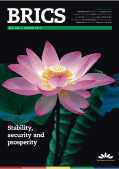 Courtesy: Newsdesk
Courtesy: Newsdesk
Alongside the 2012 BRICS Summit in Delhi, this special publication is a collection of articles that addresses important issues of the global agenda, the priorities of BRICS, the policies and competitive advantages of the participants, as well as BRICS institutionalization.
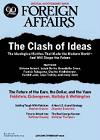 Courtesy: Foreign Affairs
Courtesy: Foreign Affairs
China seems to want the yuan to dethrone the dollar as the global reserve currency. But don’t expect China’s currency to take over anytime soon. The yuan will rise, but far slower than predicted, and Beijing’s puzzling efforts to help it along reveal flaws in the government’s divided and incremental approach.
 Courtesy: Foreign Affairs
Courtesy: Foreign Affairs
As Indonesia hosts a number of high-level summits this year, it looks set to take its place among the world’s economic superstars. But celebrations are premature: although Indonesia has made great strides, its gains are reversible. To continue to prosper, Jakarta must address rampant corruption and poor governance
 Courtesy: Foreign Affairs
Courtesy: Foreign Affairs
Is China poised to take over from the United States as the world’s leading economy? Yes, judging by its GDP, trade flows, and ability to act as a creditor to the rest of the world. In fact, China’s economic dominance will be far greater and come about far sooner than most observers realize.
 Courtesy: Pragati
Courtesy: Pragati
Both Tokyo and New Delhi see each other as reliable partners, and continue to do so after the Japanese earthquake and nuclear disaster. The Japan-India relations in the post-disaster environment must be understood in terms of humanitarian, economic and strategic dimensions.
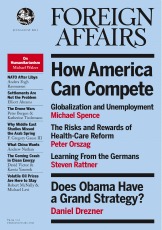 Courtesy: Foreign Affairs
Courtesy: Foreign Affairs
Henry Kissinger's new book argues that the United States should yield gracefully to China's rise; Aaron Friedberg's gives the opposite advice. By focusing on intentions instead of capabilities, both books overstate China's actual power.
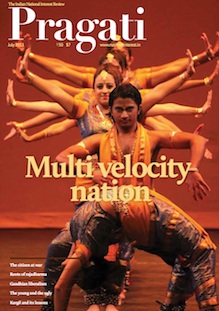 Courtesy: Pragati
Courtesy: Pragati
On May 1998, as India declared itself as a nuclear weapons state, it also committed its nuclear program to the No First Use of nuclear weapons policy. Consequently, the policy has been viewed as a democratic option, but what does this say about India?
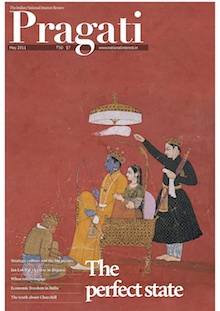 Courtesy: Pragati
Courtesy: Pragati
The earthquake and tsunami - not to forget the nuclear disaster - in Japan, along with the escalating Arab Spring has trigged a series of geoeconomic events. What, thus, is the bigger picture that emerges?
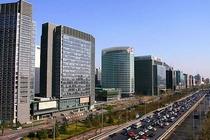 Courtesy: CobbleCC/Wikipedia
Courtesy: CobbleCC/Wikipedia
The Chinese National People's Congress has formulated a new five year plan that directs Chinese companies to assert themselves globally, proposes government involvement in "certain aspects of the economy related to social stability, such as inflation, public opinion, and the food supply."